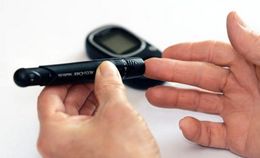There has been a lot of discussion recently about emotional eating, but what are some signs you might have this problem? First, we need to understand the purpose of eating.
Why do we eat? (Yes, that’s a reasonable question)
Food in the modern world serves three main purposes. The first is obvious: we need it to sustain life. We get that sustenance from protein, healthy fats, carbohydrates, as well as micronutrients like zinc, potassium and magnesium.
We should recognize when we’re hungry, eat only when we’re hungry, and stop when our bodies tell us we have eaten enough. Yes, this is possible!
Believe it or not, we should also and without much thought desire foods we need. Somewhere along the road to becoming “civilized”, we lost this very basic instinct that most animals possess.
The second purpose of eating is also pretty obvious: we eat for taste and pleasure. But here’s where it gets complicated. Pleasure should not trump sustenance. Of course, no one complains if food that sustains you also tastes great, but most of us are not gourmet cooks; and even if we are, we may not have the time to prepare a Food Network-quality dish for every meal. An appropriate balance of sustenance vs pleasure is to only occasionally eat primarily for pleasure.
The third purpose of eating does not get as much coverage: it’s both a social and a cultural activity. Along with language, food is at the core of culture. It is central to identity, and enjoying it with others unites us in a highly meaningful way. This also applies to those of us with multi-cultural families or who like to eat foods from multicultural traditions. Perhaps because the pace of modern life makes it difficult for all meals to be social, we have become a society where eating is often done alone or on-the-run.
Signs you aren’t eating for these reasons:
- You eat certain foods even though you aren’t hungry.
- You eat some foods until they are gone, not till you’re physically satisfied.
- When you eat certain foods, you feel an immediate sense of emotional relief; conversely, when you don’t eat them, you can become agitated or anxious.
- While you might experience some pleasure while eating those foods, afterward you feel shame, remorse, regret and a sense of failure.
- You spend time worrying about whether you can cut down eating certain foods.
Notice that none of these signs relates to any of the three main reasons for eating. This means eating is serving other purposes.
We are all emotional eaters, sort of...
Let’s face it, virtually everyone eats from time to time for reasons other than the three just described. And not all emotional eaters have weight management problems since weight gain often also involves other things such as hormonal or metabolic imbalance and a sedentary lifestyle. Emotional eaters can be of normal weight or even underweight (especially those with eating disorders, but that is a different subject…).
Regardless of weight, chronic emotional eaters are driven to eat primarily for other reasons.
What causes emotional eating?
Contrary to popular understanding, emotional eating does not result from lack of willpower. Turns out the calorie-dense foods that emotional eaters tend to crave, such as sweets and refined carbohydrates, have actually been found to lower cortisol, one of the main stress hormones. So eating these “comfort foods” in order to relax starts a cycle of eating as an unconscious strategy for managing stress.
Karen Koenig, a clinical social worker specializing in the psychology of eating, says there is a problem with the term “comfort food”: “A misleading misnomer if there ever was one, comfort is not something we want to keep associating with food”[i].
Problem is that eating “comfort foods” can lead to accumulation of unhealthy fat, weight management problems and Type 2 Diabetes. Complicating matters even further, these foods frequently include addictive substances such as sugar and other sweeteners. Did you know that sugar masquerades in many processed foods under 60 different names?
Another problem is that while emotional eaters use food to relieve stress, food never really fills the need that prompts it. Karina Melvin, a psychoanalyst and counselor, distinguishes between physical and emotional hunger, she says: “Emotional hunger cannot be satiated with food”[ii].
Emotional eating almost always involves a trigger, such as discomfort, distress or stress, which eating tends to resolve. For many, there is a long history going back to childhood of food being used in that way, sometimes also involving the example set by parents.
What to do about chronic emotional eating
There are a couple of initial steps you can take on your own. The first is start journaling: write down what happens before, during and after episodes of uncontrolled eating. See if you can identify a pattern.
Are there common emotional triggers? (Talking to your mother, writing a report at work, etc.)
Are there common situations? (At home alone, in the lunchroom at work, etc.). Common times? (Late at night, days leading up to your period, etc.).
See if you can identify the feelings associated with these triggers rather than acting on them unconsciously. Write them down.
Then see if you can modify your response to them (go for a walk after talking to your mother, mark the PMS days on a calendar so you can anticipate them).
A second tip is ask yourself if you are physically hungry before automatically reaching for that candy bar. A common trigger for some emotional eaters is boredom. Susan Albers, a clinical psychologist who specializes in eating issues, says the act of eating: “gives us something to do. It fills our time, gives us a way to procrastinate.”[iii]
If you think you are a chronic emotional eater, there are some excellent online resources to support you in your journey to connect with your real reasons for eating, such as The Center for Mindful Eating.
If you think you might need professional help, cognitive behavioral therapy (CBT) can be an effective intervention for emotional eating. Look for a CBT practitioner near you or online.
Finally, if along the way you need to address hormonal and metabolic imbalances that often accompany emotional eating and weight gain, ask me about the personalized weight management program I am certified to coach, visit my profile, follow me, and learn about Wellness Care Online, which focuses on balancing hormones, metabolism, weight and mood. And call me for a free 15-minute consultation to learn more about how I work with clients.
What have you done to help curb your emotional eating?
[i] Quoted in Iseman, C, “Emotional eating: experts reveal the triggers and how to control them”, Huffington Post, February 25, 2019: www.huffpost.com/entry/emotional-eating-triggers_l_5c61c803e4b028d543169e60
[ii] Melvin, Karina, Blog: “An effective cognitive behavioral tool to help you stop emotional eating”, March 20, 2019: https://psychcentral.com/blog/artful-eating/2016/10/a-cognitive-behavioural-therapy-tool-to-help-you-stop-emotional-eating/
[iii] Quoted in Mercola, J “The science of emotional eating and food addiction”, March 7, 2019: https://articles.mercola.com/sites/articles/archive/2019/03/07/emotional-eating-food-addiction.aspx?utm_source=dnl&utm_medium=email&utm_content=art1&utm_campaign=20190307Z1_UCM&et_cid=DM272101&et_rid=562235568




















